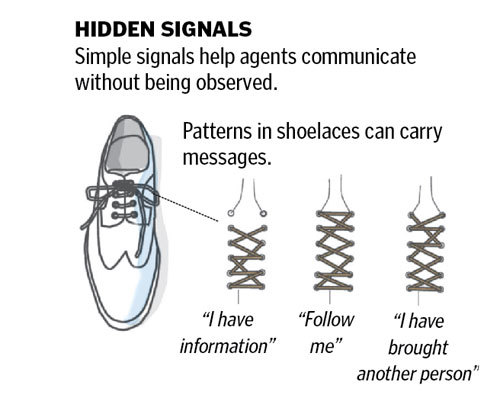The creators of Gumby, and later Jasper Fforde, had it right. Books are the closest we’re going to get to a portal in a long time I reckon. So these bookends seem fitting.


The creators of Gumby, and later Jasper Fforde, had it right. Books are the closest we’re going to get to a portal in a long time I reckon. So these bookends seem fitting.


Because we’re currently childless I take great delight in teaching bad habits to other peoples’ children. I think I’ve found the perfect birthday present for such children. Lets face it, no sane parent is going to buy their child this book:

If a less appropriate book has ever been written, I’ve not seen it. Backwards Masking Unmasked included.
Behavioural economics fascinate me. Here’s a story about a guy named Cass Sunstein who’s a friend (and loosely speaking, an adviser) of Obama’s, from the University of Chicago, who wrote a book called Nudge, it sounds Gladwellesque. It might be my next holiday read…

Here’s a bit of a summary from the compelling NY Times profile.
In “Nudge,” a popular book that he wrote with the influential behavioral economist Richard Thaler, Sunstein elaborated a philosophy called “libertarian paternalism.” Conservative economists have long stressed that because people are rational, the best way for government to serve the public is to guarantee a fair market and to otherwise get out of the way. But in the real world, Sunstein and Thaler argue, people are subject to all sorts of biases and quirks. They also argue that this human quality, which some would call irrationality, can be predicted and — this is the controversial part — that if the social environment can be changed, people might be nudged into more rational behavior.
Libertarian paternalists would have school cafeterias put the fruit before the fried chicken, because students are more likely to grab the first food they see. They support a change in Illinois law that asks drivers renewing their licenses to choose whether they want to be organ donors. The simple act of having to choose meant that more people signed up. Ideas like these, taking human idiosyncrasies into account, might revive an old technocratic hope: that society could be understood so perfectly that it might be improved. The elaboration of behavioral economics, which seeks to uncover the ways in which people are predictably irrational, “is the most exciting intellectual development of my lifetime,” Sunstein told me.
Sunstein now works with OIRA – which, being an acronym, is a government department. A department that looks at policy ideas and ways them up economically using a cost/benefit analysis that controversially assigns dollar values to intangible things… it has previously used these values:
The office’s administrators require that federal agencies express the costs and benefits of their proposed rules (lives saved, swampland preserved) in dollars. Moral principles, filtered through this cost-benefit analysis, find their way into confounding little boxes. A human life, the E.P.A. figured in a 2001 rule about arsenic and drinking water, was worth $6.1 million. (If an environmental regulation would save one life but cost $4 million, it ought to be put into effect; if it cost $8 million to save that life, the regulation would be scuttled.) Each I.Q. point a child lost because of exposure to lead was worth $8,346 over the course of a lifetime. A lost workday was worth $83. Many of these estimates used data from surveys — taken at malls, among other places — that asked passers-by how much more they would need to be paid to take on a job that carried, for instance, a 1-in-10,000 risk of death. Richard Posner, who has the most magnificent and chilly mind in this realm, used similar projections to price the benefit of preventing the extinction of the human race at $600 trillion.
Sunstein wants to bring this utilitarian approach together with his “libertarian paternalism” which would be very interesting indeed.
Also on the subject of reading, and also from Andy Unedited, comes this insight into book cover design, from the horse’s mouth so to speak…
Every genre of book has a code—a visual set of criteria that readers instinctively expect to find represented on the cover. We expect brightly colored illustrations for children’s books. We expect large-block type (probably embossed) on the covers of political thrillers. We expect restrained sophistication on academic books. And we all know what the cover code is for a biography—a prominent head-and-shoulders photograph or painting of the person who is its subject.
I noticed this the other day when a couple of the books I was reading on Roman history (for an essay) from different publishers had essentially the same cover. Maroon blocks, serif font in cream (Timesish), and a the use of some first century art (or artistic representation) as a hero image… I don’t know what genre that is specific to…

I can’t remember what the second one was… but it wasn’t this one…

Or this one (though I did use this one)…

IVP publisher Andy Le Peau says the key to cracking the market is twofold:
1. Keeping the aforementioned “code”
2. Positioning.
Here’s what he says about positioning:
“But if a cover looks like every other book of its type, won’t it get lost? That’s where positioning comes in. The book also has to clearly offer something different, something that sets it apart from all the other books in its category.
The trick is to make a cover different but within the confines of the code. That’s what great design does. It’s like writing. Great authors know when to break the rules to make their piece even more powerful, to make it stand out. But they don’t break the rules so much that the book falls completely out of its category.”
Speaking of book covers – here’s a time lapse of one being put together.
Amazon has released a look at the passages most highlighted on the Kindle. I reckon this is pretty interesting data. This gives a little bit of insight into the thoughts of nerdy people who buy e-book readers. Do people highlight things because they are profound? Or because they agree with them? I don’t know, but worryingly on both counts – the Shack dominates the top ten, it scores five of the top ten results and nine of the top twenty…
They’re all pretty pithy philosophical mantras representing a protestant view of the world – valuing hard work, success, sacrifice, trust, relationships, and a sense of the spiritual.
Here are the top ten, and their books…
A little analysis
E-book platforms are more common in the United States than they are here – they’re not necessarily just for geeks (if it was a Venn diagram the Geek side would cover slightly more territory than the “keen reader” side (I can’t back this up with research – it’s all hearsay).
Eight of those ten quotes are from books related to Christianity. The one at #7 has probably been highlighted so that people can look up the web address later.
The two Outliers quotes are essentially outliers – but they’re both to do with success and career satisfaction, and a quest for meaning in that sphere (though arguably in all spheres in #8).
The rest represent what I think is a mix of Christianity, philosophy and psychology, #10 could be drawn from either Buddhism or Christianity with a zen like push for contentment (and thankfulness), #9, #4, #3 are about how we treat others (with the implication that we should serve them), #4 and #5 are about relationships, #4, #6 and #9 are about power dynamics, and #5 and #6 are about trust.
It’s interesting that these, and the next ten on the list, could almost be defined as being quotes about happiness and the meaning of life – and a number of them tie that to fulfilling relationships and service of others. What I haven’t told you is that quote #1 (about career success) was highlighted by 37% more people (1749) than number #2 (about grace) (1270).
A few days ago I shared a bunch of odd books for kids – here’s the equivalent post for adults. Most of these come from this list of ten strange books… which in turn comes from the Abe Books “Weird Books Room“. Every aspiring writer wants their tome to end up listed here… don’t they?
Here’s one for impressing your guests:

And one for the Emo first home buyer… how hard can it be to just paint everything black?

Looking for some Bible study material? How about Bible study with the Clampetts?

How about some arts and crafts for the construction site where all you have is Duct Tape?

Want a romantic career? Consider proctology and get yourself a copy of “The Romance of Proctology” which has been out of print since the publishing company realised what proctology actually was and pulled their fingers out.

And finally, here’s one I might actually buy – If I ever want to properly take over the world…

This is one of those “ah ha” moments. The CIA has released some operating secrets from the pre-technology era. Those guys were high tech. You can buy a book filled with awesome tips. Like these. Via the Boston Globe.

That’s not the best one.


There’s a big furore going on over the cost of eBooks now that Apple has entered the marketplace. Amazon is fighting a big publisher, Apple is wanting to charge $15 a book. It’s the neverending story.
Ebooks present all sorts of opportunities for pirates – and new law suit opportunities for publishers and distributors.
But there’s a more serious game afoot that is costing publishers billions in lost book sale revenues every year.
Apparently there are these buildings operating in most cities where you can just borrow these books for free.
These so called “libraries” are running right under our noses – often under the auspices of governments. What’s with that. This blogger has a calculation of the loss publishers face (in the US alone) if these organisations are able to continue unchecked.
Go To Hellman has computed that publishers could be losing sales opportunities totaling over $100 Billion per year, losses which extend back to at least the year 2000. These lost sales dwarf the online piracy reported yesterday, and indeed, even the global book publishing business itself.
Ever wondered what an evil dictator reads. Would you burn your books if you found out they were Hitler’s favourites.
“He ranked Don Quixote, along with Robinson Crusoe, Uncle Tom’s Cabin and Gulliver’s Travels, among the great works of world literature. “Each of them is a grandiose idea unto itself,” he said. In Robinson Crusoe he perceived “the development of the entire history of mankind”. Don Quixote captured “ingeniously” the end of an era. He was especially impressed by Gustave Doré’s depictions of Cervantes’s delusion-plagued hero.”…
He was versed in the Holy Scriptures and owned a particularly handsome tome with “Worte Christi” (Words of Christ) embossed in gold on a cream-coloured calfskin cover that even today remains as smooth as silk. He also owned a German translation of Henry Ford’s anti-semitic tract The International Jew: The World’s Foremost Problem and a 1931 handbook on poison gas, with a chapter detailing the qualities and effects of prussic acid, the homicidal asphyxiant marketed commercially as Zyklon B. On his bedstand, he kept a well-thumbed copy of Wilhelm Busch’s mischievous cartoon duo Max and Moritz.
This book version of the story of the old lady who swallowed a fly looks beautiful.


You can get it here (bookdepository) or pay more here (Amazon).
I loved Choose Your Own Adventure books as a young’un. Though, being a Campbell, I was a pretty bad cheat and used to do them backwards after a couple of frustrating deaths.
Perhaps I would have made better choices had I studied the structure of the books in depth. Like this person has.


In scanning over the distribution of colors in this plot, one clear pattern is a the gradual decline in the number of endings. The earliest books (in the top row) are awash in reds and oranges, with a healthy number of ‘winning’ endings mixed in. Later cyoa books tended to favor a single ‘best’ ending (see CYOA 44 & 53).
And here’s something I did not know, and indeed it contains a life lesson for those of us who like to cheat…
The one outlier is the catastrophic ending seen in the third row from the bottom. This was a punishment page that could only be reached by cheating. Unlike most other endings in the book it does not offer to let you continue the story from a few pages back but instead calls you a cheater and leaves you with no choice but to start over from the beginning.
Apparently the books evolved to become more difficult over time. As indicated by this graph…

Read the rest of the research. It’s interesting.
It’s been a while since I plugged booko. It’s very handy. You can price match on books from online retailers. And it’s an Australian site…
I bought a batch of books last week – including Ratio – the conceptual cook book Simone was looking for many months ago…
I love books. The idea of defacing them kind of hurts… but maybe if you find an old copy of something atrocious like Joel Osteen’s “Your Best Life Now” it would be worth turning it into something truly wonderful and edifying… like these sculptures that were used in an advertising campaign in Prague…

I love gangster books. Both novels and the “true” confessions of mob informers who use their tell alls to fund life on the run. I was going to write a gangster novel once. Then I got distracted.
By medieval books… I love medieval books – all those swords…

But swords get tired pretty quickly… what really gets exciting is undersea monsters… and pirate ships…

There are heaps of other creative book based artworks here. Well worth your time.

I planned to do a lot of reading this week. And I failed. We watched too much West Wing – it’s as intellectually stimulating as reading.
I did however manage to almost finish one of the cleverest books I’ve read for a long time. It’s all about salt. It’s fascinating. I will no doubt blog a lot about salt in the next two weeks as I think back through the interesting bits.
Salt is the bedrock of civilisation.
You should read this book.